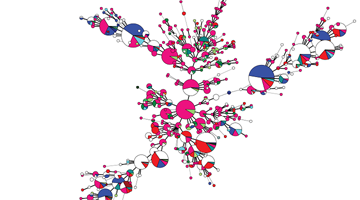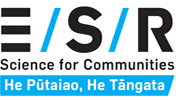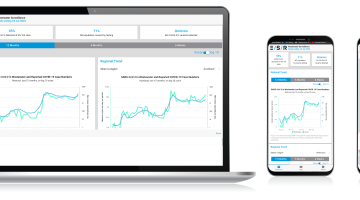Genomics
Ngā huingaira
Genomics is the study of the structure and function of the entire genome, or genetic instructions, of living organisms. All living things, from single-celled bacteria to multi-cellular humans, have a genome, which contains the information needed to build and maintain that organism throughout its life. The more we know about genomes, the more we understand our health – and the wellbeing of the world around us – in order to make informed health decisions.
Genomics Aotearoa Consortia
ESR is a partner in Genomics Aotearoa, a science platform supporting advanced genomics research in New Zealand. It is an alliance between New Zealand Universities and Crown research institutes which provides a collaborative platform to grow New Zealand’s capability, build international connections and develop tools and technologies to support genomics research.
Microbial Genomics
- Viral detection in wastewater, including COVID-19 screening.
- Clinical Metagenomics led by Matt Storey. Collaboration with Dr Max Blomfield, Wellington SCL based at the Wellington Hospital.
Human Genomics
- ESRs Human Genomics team is collaborating with clinicians and surgeons at Wellington Hospital with the aim of bringing the benefits of lower cost, quicker turn-around sequencing to aid in clinical decision making.
- DNA methylation, transcriptomics and small non-coding RNA and their role and utility as biomarkers in metabolic diseases - in particular obesity and type-two diabetes. This incorporates a Social Systems aspect to understand what makes a successful community-led intervention and is part of Healthier Lives(external link) He Oranga Hauora National Science Challenge.
- Epigenetics for equitable cardiovascular risk prediction.(external link)
- Affordable, disruptive sequencing for community empowerment (external link)-
Service
- The presence of an unwanted microorganism could lead to damaging and expensive recalls, and erosion of trust in a product or brand. ESR scientists can provide information to identify food safety and quality issues that could otherwise prove potentially serious.
- GenomESR (external link)can provide surety in obtaining confidential results to identify and characterise isolates (microorganisms) from food, health, water and environmental samples. GenomESR uses next-generation sequencing technology to determine the entire DNA make-up of a microorganism – commonly referred to as the genome sequence.
Forensics
- DNA databank
- miRNA markers for Concussion

Genomics and next generation sequencing
ESR is exploring DNA and how genes work to help us make smarter choices for our health and the health of our environment.
Read more
Evolution of an epidemic
ESR is using genome sequencing to analyse and understand a large-scale meningococci epidemic based on New Zealand's prolonged epidemic experienced between 1991 and 2008.
Read more

